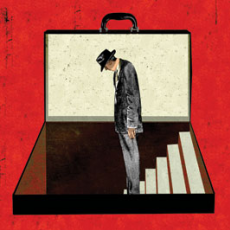
Furthermore, there is a consistent theme in the play surrounding seeds and Willy’s inability to grow anything in his back garden. Miller’s imagery choice of the leaves and new life cycle clearly has a metaphorical meaning to it and perhaps infers that upon Willy’s death, the delusion that Miller described as a “disease” ceases to infect Biff and Happy and once again relates to the idea that they can now flourish and bloom as new life following Willy’s death. Miller’s decision to have Willy’s suicide in his motorcar is fitting with the concept of the delusions and dark cloud restraining Happy and Biff that has now been driven forcefully away. Miller was hugely inspired by the playwright Henrik Ibsen and his influence is heavily featured in ‘Death of a Salesman’, “In [Willy’s] mind his death is not an escape from the consequences of his guilt, as it is for Joe Keller in ‘All My Sons’, but a positive step towards building ‘The American dream’ for his son[s]”. Thus this interpretation of Miller’s leaf imagery can be strongly evaluated as a positive aspect towards the ending of the play, providing a new range of life choices for Willy’s sons.
The leaves can be also interpreted negatively, almost mocking Willy, covering the ground wherein he now lies; a lifeless body amongst the dead soil from which nothing would grow. This interpretation of the leaves seems more probable perhaps than that of a new life cycle which tries to find non-existent positives from an overwhelmingly negative piece of narrative. Evidence within the play for this can be found through the character of Happy. Happy and Lynda are left defending Willy’s ideals and influences even after his death, similarly to how the children are left to deal with life after parents in ‘Oedipus’. Perhaps Miller is suggesting here that the power of delusions and family are hard to break and have existed as an issue since the ancient Greek writing of ‘Oedipus’. Therefore this negative interpretation of the leaves seems more likely as Happy is still blindly following Willy’s ideals, evident from such exclamation as “this is where I’m gonna win it for him,” and “I’ll beat this racket”. Biff gives Happy “a hopeless glance”, yet more negative criteria in the end of the play.
Another strong theme in the play is that of falling down. Miller commented on Willy’s action of dumping down his suitcase in the first scene of the play upon returning home; “He’s tired in the first second of the play. She says ‘What happened?’ Nothing happened but he’s exhausted.” The falling down theme reoccurs later in the restaurant when Biff “agonised, holds Willy down”, physically trying to suppress the salesman’s delusions and force him to listen to the truth that the new self realised Biff wants to share. Furthermore, in The Requiem Linda “lays down the flowers, kneels, and sits back on her heels”. This image would be most effective visually seen on stage as Linda slumps down in a state of hopelessness, thus inferring a hopeless and negative end to the play. As Lynda is positioned at the peak of the proscenium arch on stage she is the focus of the audience in the Requiem and so an overwhelming state of hopelessness is spread in the final scene. Having dedicated her life to pleasing Willy and his delusions Lynda is left without a purpose, confused and feeling abandoned, just another victim of the ruthlessly efficient and unforgiving capitalist monster to be tossed aside. Indeed Miller presents capitalism as a towering monster, signified by the apartment buildings that “rise into sharp focus” in the last stage direction of the play. This powerful image infers the way in which Willy was engulfed by the looming power of ‘the new America’ and was left feeling rather claustrophobic and insignificant in the shadow of the highrise buildings, blocking sun from his small garden. Miller carefully chooses language such as “Sharp focus” to reinforce the brutal nature of the American Dream should you fail to achieve as Willy Loman did. For an audience watching the play this stage direction is even more effective than just the language because the big and powerful image of a highrise tower block will be the last thing the audience sees before the play ends. Through this image Miller reminds us of the cruelty of Capitalism, ending the play on a negative.

0 Comment:
Be the first one to comment on this article.